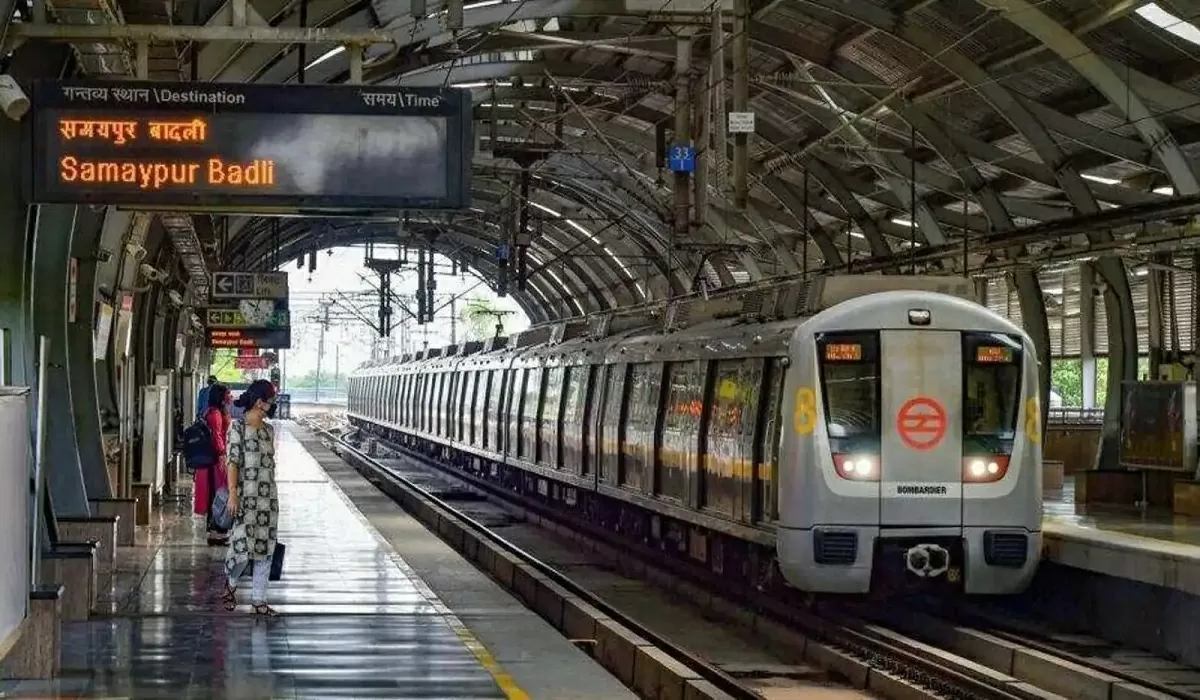the Delhi Metro Rail Corporation (DMRC) has put forward an ambitious proposal for the expansion of metro services across the national capital. The proposal, which was submitted to the Union Ministry of Housing and Urban Affairs, outlines plans for the development of 18 new metro corridors, covering a sprawling 206.5 kilometres.
This expansion, if approved, marks a significant leap in DMRC’s ongoing efforts to revolutionise urban mobility in the city.At the heart of this proposal is the goal to extend metro services to more regions, making Delhi’s metro network accessible to a broader swath of the population. DMRC officials have stressed that the expansion will not only help alleviate road congestion but also contribute to a reduction in air pollution, a growing concern for the city’s residents. The metro is seen as an eco-friendly alternative to the ever-increasing number of private vehicles on the road, which is one of the key drivers of Delhi’s air quality crisis.
According to the detailed proposal, the expansion will unfold in two phases. The first phase will focus on three new corridors, including the much-anticipated Central Vista Corridor, which will stretch from Indraprastha via India Gate. This corridor will be a crucial link for commuters travelling through some of the city’s most iconic landmarks. Additionally, the Aerocity-Airport Terminal 1 and the Tughlakabad-Kalindi Kunj corridors will extend the existing network, providing enhanced connectivity to crucial transport hubs like the Indira Gandhi International Airport. The first phase will span approximately 15.8 km, marking a promising start to the broader vision.
Phase two, which promises even greater expansion, includes the development of 15 more corridors, some of which will stretch beyond the city’s limits to connect Delhi with surrounding regions of Uttar Pradesh and Haryana. These extensions are particularly important as they will offer much-needed connectivity to suburban areas, reducing travel times for commuters who rely on road transport. The corridors in this phase are designed to ease pressure on both the city’s road infrastructure and its air quality, addressing the growing need for efficient inter-city connectivity.The proposed expansion is not just about increasing the length of the metro network but also about improving the overall commuting experience. Once completed, the project will effectively link almost every part of Delhi, creating an integrated and seamless transport system that could drastically reduce reliance on private vehicles.
This shift is expected to have far-reaching environmental benefits, including reductions in carbon emissions, which aligns with the city’s broader goals of promoting sustainable and green urban development.Further, DMRC has sought approval for the preparation of the Detailed Project Reports (DPRs) for the new corridors, particularly those connecting Delhi with its neighbouring states. These areas, currently underserved by the metro, will greatly benefit from the enhanced connectivity, making commuting more efficient for residents in these regions. However, these plans are still in the initial stages, awaiting in-principle approval before the DPRs can be drafted and construction can begin.
For Delhi residents, the prospect of such an expansive metro network offers a glimpse into the future of urban transport. With the promise of better connectivity, reduced travel times, and a cleaner, greener environment, the metro expansion could be a game-changer. As the city grapples with the challenges of rapid urbanisation, the DMRC’s proposal offers a strategic and sustainable solution to address some of the most pressing issues facing the capital today.If approved, the metro’s growth will not only revolutionise public transport but also redefine how Delhiites interact with their city. From reducing congestion to improving air quality, the expansion of the metro network is a vital step towards creating a more equitable, sustainable, and accessible urban space for all. The success of this ambitious proposal will depend on swift government action and investment in future-ready infrastructure that can accommodate the growing demands of a modern metropolis.


